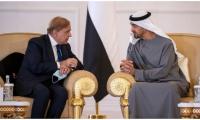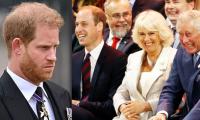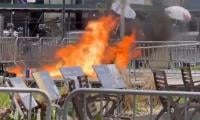TOKYO: Japan's prime minister pitched a plan to delay next year's sales tax hike to fellow ruling party members on Monday, some of whom expressed concerns that such a move would signal a failure of his policies to reflate the economy out of stagnation.
Prime Minister Shinzo Abe met several senior lawmakers to convey his intention to postpone the tax hike - among them, Masahiko Komura, vice president of the ruling Liberal Democratic Party.
The proposal would mean a two-and-a-half year delay from April 2017 when the hikes were scheduled to take effect.
While some within his party have expressed reservations about the move, Abe is not expected to face any major opposition to the proposal as his party executives are likely to present a united front ahead of the upper house election in the summer.
"The premier's determination to postpone the tax increase seems to be very strong," Komura told reporters after the meeting with Abe.
Komura's comments confirm what sources had told Reuters on Sunday as Abe looks to avoid dealing a blow to a fragile economic recovery, with the announcement on the tax decision expected ahead of an upper house election expected in July.
Sadakazu Tanigaki, secretary general of the ruling LDP, told reporters on
Monday there was no major opposition to Abe's proposal to delay the tax hike in a meeting of the party´s
executives held late afternoon.
Finance Minister Taro Aso had on Sunday voiced opposition, saying that Abe should dissolve the lower house of parliament and call a snap election if he were to postpone the tax hike.
And in a separate meeting with Abe on Monday, Natsuo Yamaguchi, head of the Komeito party, LDP´s junior coalition partner, declined to sign off on the plan, saying only that he would discuss the matter with his party members.
Speculation has centered on the possibility Abe would call a snap election for the lower house in a bid to secure a mandate to postpone the tax increase.
This comes amid a surge in his approval ratings following the G7 summit and U.S. President Barack Obama's historic visit to Hiroshima last week.
However, Toshihiro Nikai, another senior LDP official who met Abe on Monday, said the premier did not appear to have any immediate plans to call a snap election.
Expectations the government will delay the tax hike helped push Japan´s Nikkei stock index to a one-month high.
Despite some voices of dissent from within his own party, Abe is expected to formally announce the tax hike delay by the end of the current session of parliament on Wednesday.
The prime minister is also expected to order an extra budget to boost stimulus measures, just two months into the fiscal year and on the heels of a supplementary budget to fund rebuilding efforts after the recent earthquakes in southern Japan.
Consumption has yet to recover after Japan fell into recession when Abe raised the sales tax to 8 percent from 5 percent in April 2014 in an effort to curb government debt.
Data released on Monday showed retail sales fell in April for the second
consecutive month, bolstering the argument that next year´s tax hike should be postponed.
Fiscal hawks like Aso have argued the tax hike is critical to rein in Japan´s huge public debt and cover ballooning social welfare costs of its fast-ageing population.
Abe has long said he would proceed with a plan to raise the tax rate to 10 percent next April unless Japan faced a crisis on the magnitude of the 2008 Lehman Brothers collapse.







